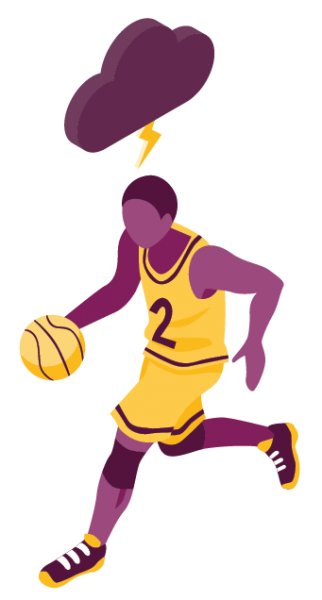Mental Health and Well-Being Among Collegiate Student-Athletes
Waters College of Health Professions

Mental health and well-being are areas of importance among the general college student population as universities have expanded resources and access pertaining to mental health support. For example, researchers have identified the top 10 factors leading to the most concern among college students as academic performance, pressure to succeed, post-graduation plans, financial concerns, quality of sleep, relationships with friends, relationship with family, overall health, body image and self-esteem. These factors contribute to the experience of depression, anxiety and stress among this population.
Furthermore, collegiate student-athletes have been identified as a unique group of students on college campuses given the varied and additional demands placed on them. Indeed, experts suggest that student-athletes have a unique lifestyle consisting of personal, scholastic and physical demands within an educational system and public community that also places these athletes in the limelight.
Additional challenges documented by researchers include the psychological demands of their varied commitments, injury, and drug and alcohol use. The results of these demands may also be compounded due to the known cultural and systematic barriers to health-seeking behavior for these individuals. Specifically, time restrictions, stigma associated with counseling and fear of losing one’s athletic status can prevent student-athletes from seeking services according to experts. Additionally, as student-athletes navigate the college experience alongside their athletic careers, their mental health concerns often become public knowledge, potentially causing further mental and emotional turmoil.
Being the “face” of the university may hinder athletes from seeking out mental health resources. To address this growing demand, Georgia Southern developed a collaborative group of professionals to form the Mental Performance Team, consisting of three Certified Mental Performance Consultants, two of whom are also licensed mental health providers, a sports medicine physician and the Senior Associate Athletic Director for Sports Medicine/Head Athletic Trainer.
— Megan Byrd, Ph.D., Assistant Professor, Dept. of Health Sciences and Kinesiology
— Brandonn Harris, Ph.D., Professor, Graduate Program Director, Dept. of Health Sciences and Kinesiology
